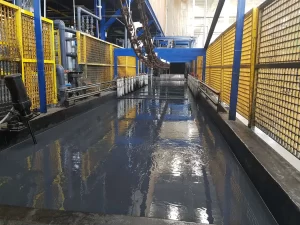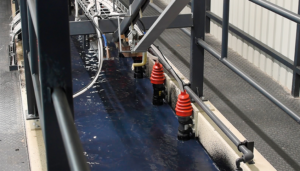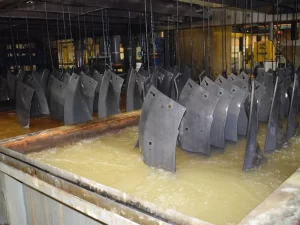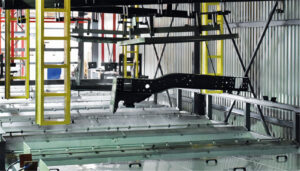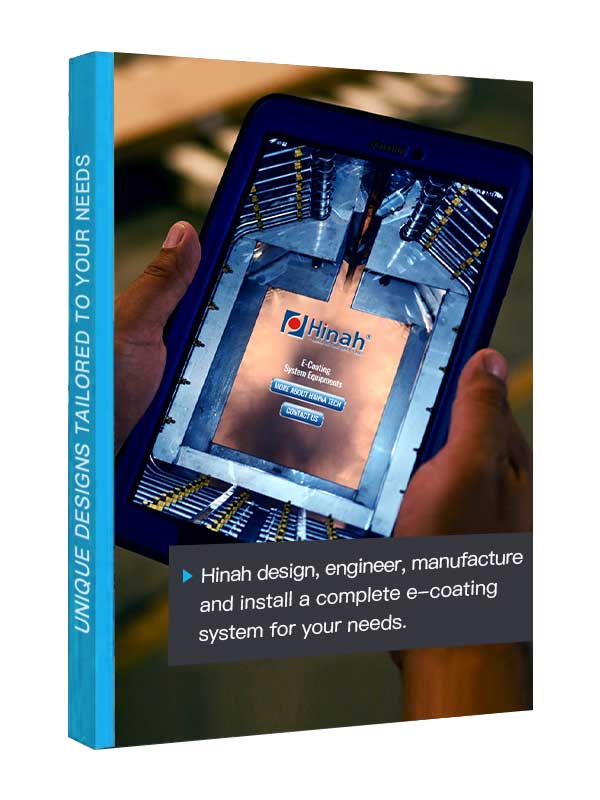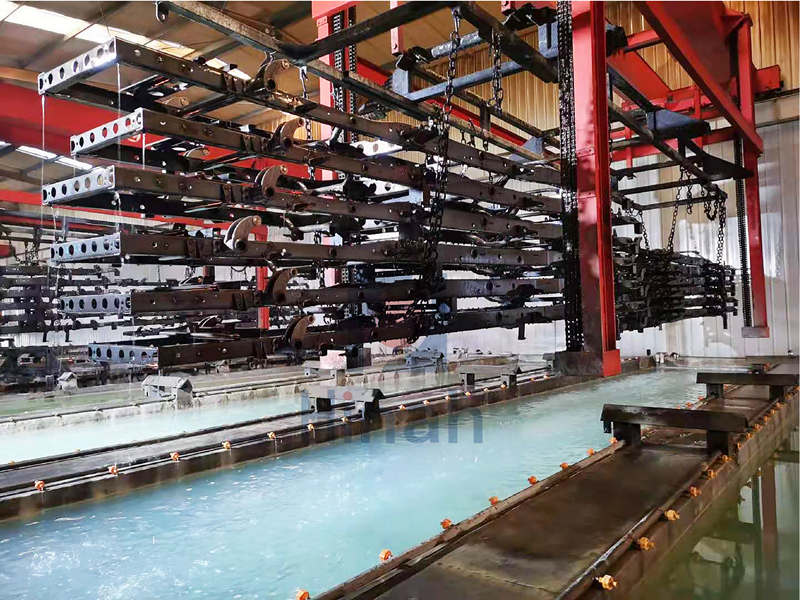Ultrafiltration (UF) systems are the critical efficiency engine in modern e-coat lines, transforming waste into value. Without UF technology, electrocoating operations lose over 30% of paint to rinse water and battle contamination-induced defects like craters and poor adhesion. This closed-loop filtration solution directly tackles these costly pain points.
By recovering 95%+ of paint solids and maintaining contaminant control, UF systems slash material costs while ensuring finish quality. For any e-coat line targeting sustainable, high-yield performance, optimized UF integration isn’t optional – it’s the backbone of paint recovery and defect prevention.
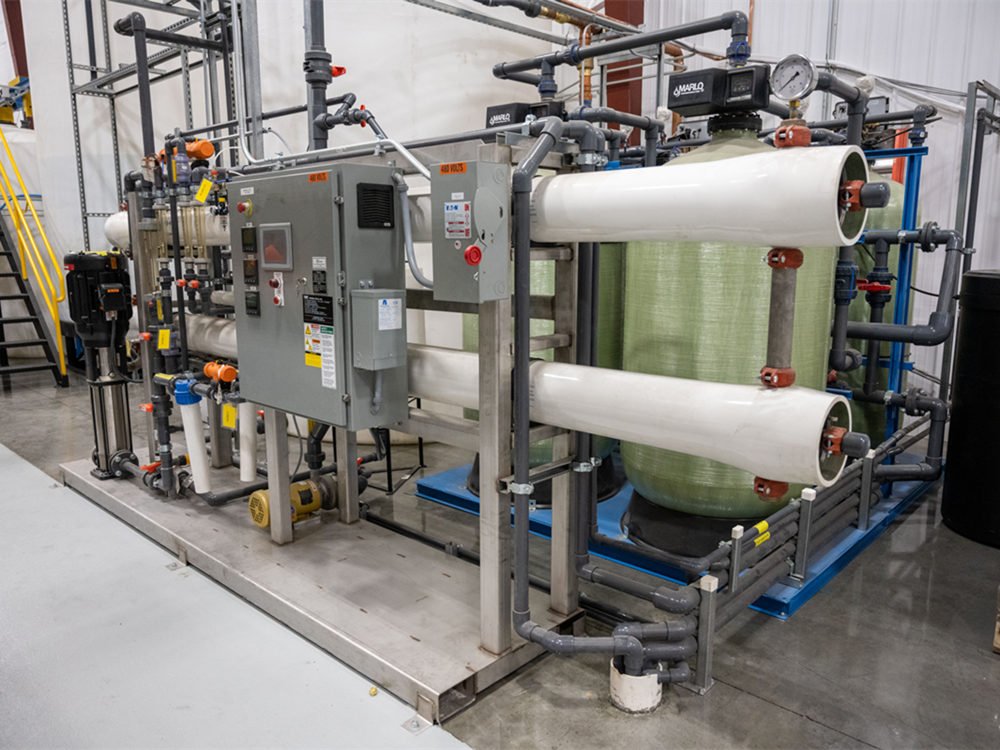
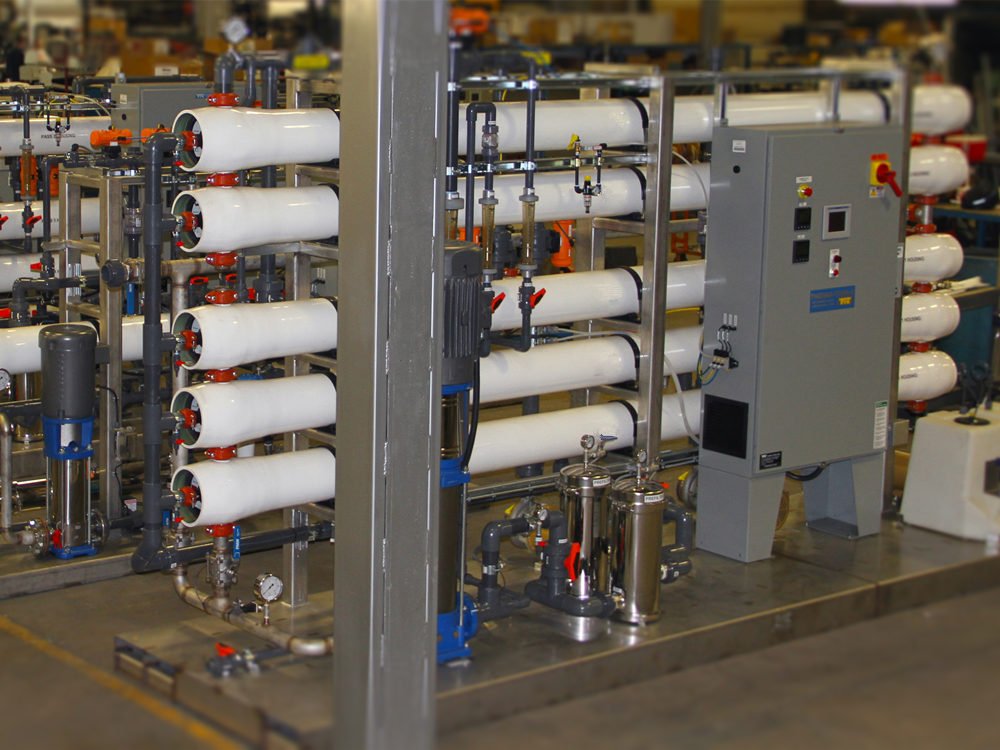
How UF systems work in an e coat line: core mechanism
Ultrafiltration systems function as precision filters in e coat line, using semi-permeable membranes to separate reusable paint solids from contaminants. The process operates through three critical stages:
Step-by-Step Filtration Process
- Contaminated Feed Intake:
Post-rinse water (carrying 5-15% uncured paint solids) from the e-coat line enters the UF feed tank.
- Membrane Separation:
- High-pressure pumps force liquid through membranes with 0.01-0.1 micron pores
- Permeate (Filtrate): Water + dissolved ions/salts → reused in early rinse stages
- Concentrate: Pigments/resins/polymers → returned directly to the e-coat tank
- Closed-Loop Recycling:
Permeate cleans workpieces in initial rinse zones, while concentrate replenishes the main coating tank – achieving >95% paint utilization.
Key Components & Their Roles
- Spiral-Wound Membranes:
Ceramic/polymer filters capturing particles >0.005μm. Requirement: Chemical resistance to pH 4-9 environments.
- Venturi Nozzles:
Generate turbulent flow (3-4 m/s velocity) to prevent membrane fouling.
- Conductivity Sensors:
Monitor ionic contamination (alerts at >1,500 μS/cm thresholds).
- Backflush System:
Reverses flow every 30-120 minutes to clear membrane blockages.
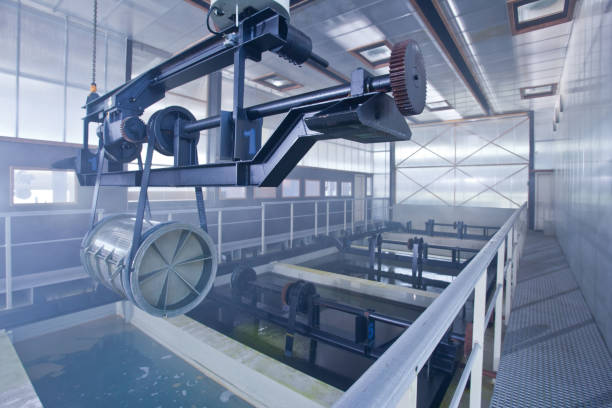
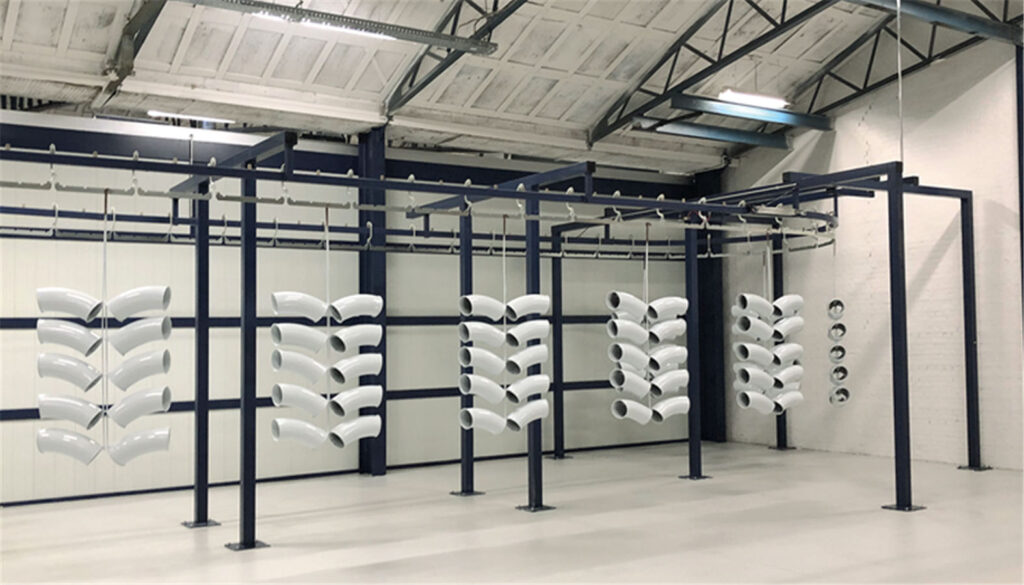
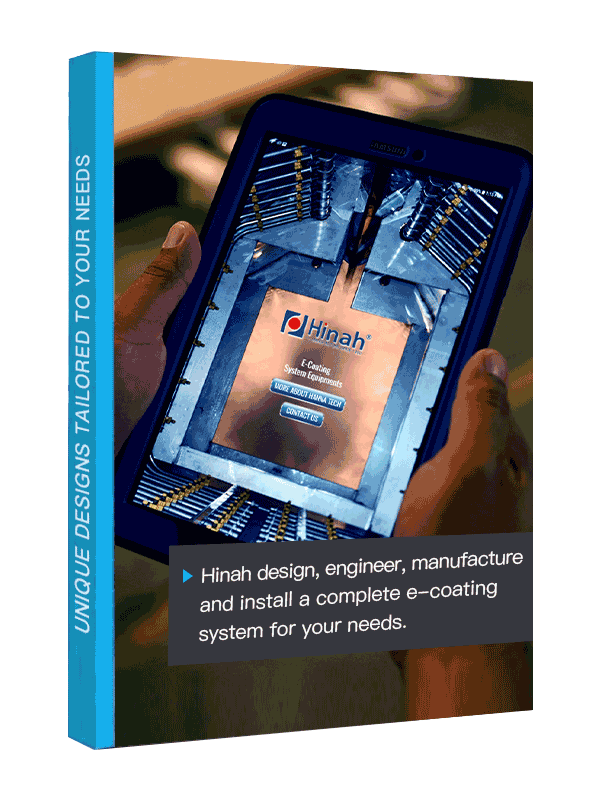
Let's Have A Chat
Get An E-coating Line Planning !
Match Your Products, Get The Solution & Price..
Critical UF functions for e coat line performance
- Maximizing Paint Recovery
UF systems are the primary profit engine in any e-coat line, capturing 95-98% of paint solids from post-electrocoating rinse stages. By concentrating resins and pigments through semi-permeable membranes, the system returns valuable material directly to the main coating tank. This recycling slashes paint consumption by 30-40% compared to non-UF operations – translating to $150,000+ annual savings for a mid-sized automotive e-coat line processing 50 vehicles/hour.
- Controlling Ionic Contamination
Contaminant management defines e-coat line quality, where UF membranes remove dissolved ions (Na⁺, K⁺, Ca²⁺) smaller than 0.005μm. Maintaining rinse water conductivity below 1,500 μS/cm prevents defects: sodium causes craters, while calcium forms gritty particulates. For high-end applications like chassis coating, this function alone reduces rework rates by 60% by ensuring consistent bath chemistry – critical for corrosion resistance.
- Reducing Water Consumption
UF enables closed-loop rinsing in e-coat lines, purifying 40,000+ liters of water daily for reuse. Permeate from UF units feeds initial rinse zones, eliminating fresh water demand for early cleaning stages. This reduces wastewater generation by 70% and cuts water costs by $18,000/year per line – a key sustainability metric for ISO 14001-certified e-coat facilities facing tightening environmental regulations.
- Enhancing Film Uniformity
Consistent permeate quality guarantees defect-free finishes in e-coat lines. By removing oil residues and micro-particles that cause fish eyes and orange peel, UF systems enable smoother deposition. Automotive OEMs report ≤0.3μm Ra surface roughness on UF-protected lines versus ≥1.2μm on unfiltered systems – directly impacting paint adhesion and salt spray test results.
- Enabling Closed-Loop Compliance
Modern e-coat lines demand zero-discharge capability, where UF systems form the core of eco-efficient operations. By recycling both paint solids and rinse water, facilities eliminate hazardous waste streams containing heavy metals (zinc/nickel from pretreatment) and VOCs. This closed-loop design satisfies Cradle-to-Cradle certification requirements while reducing EHS reporting burdens by 45% – future-proofing your e-coat line against evolving legislation.
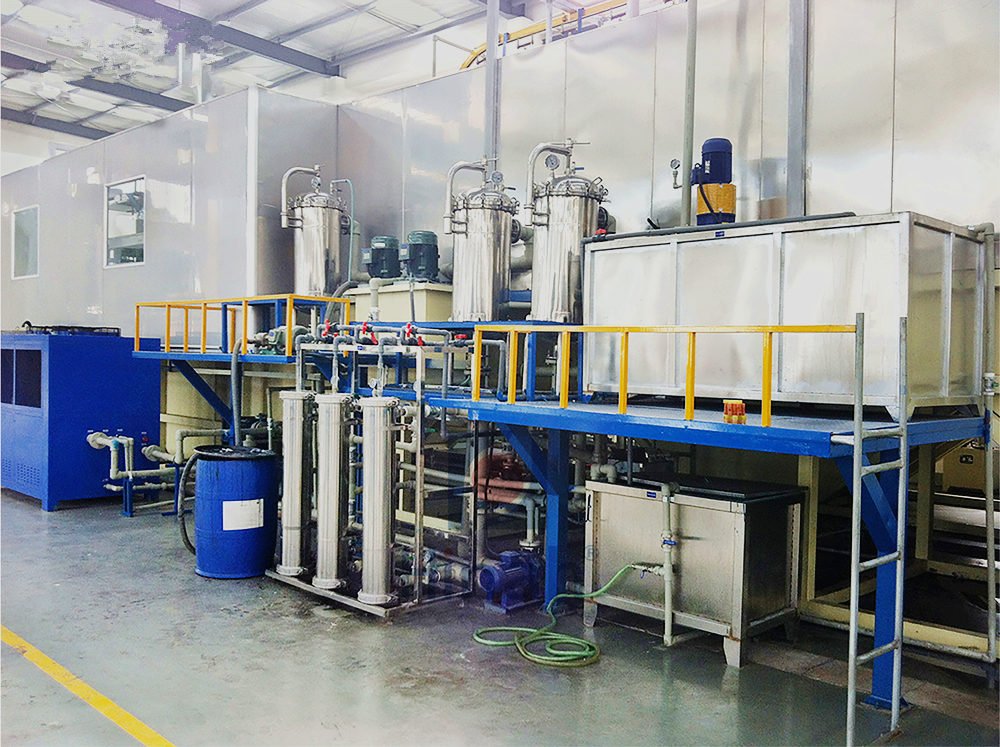
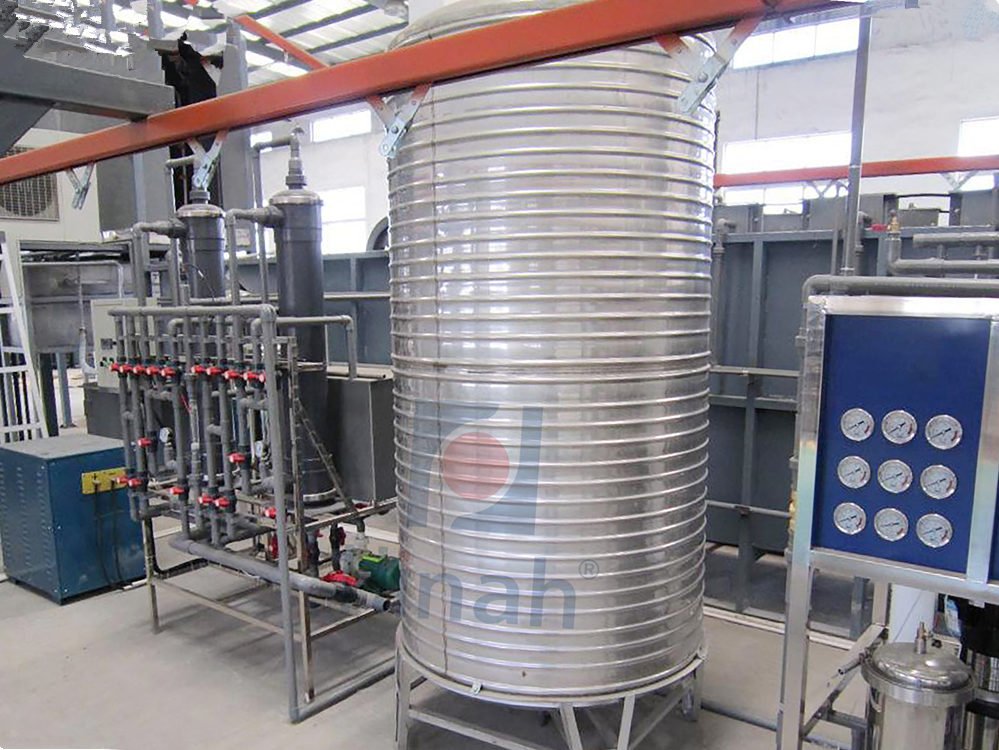
Troubleshooting Common UF Issues in E-Coat Line
Ultrafiltration (UF) systems are vital for e-coat line efficiency, yet membrane fouling and contamination can halt production. Proactive identification of these 5 frequent failures minimizes downtime while protecting finish quality. Use this diagnostic table to rapidly resolve UF emergencies:
| Problem Symptom | Root Cause in E-Coat Line | Immediate Action | Prevention Strategy |
| >20% Flux Decline | Oil carryover from pretreatment | Inject surfactant (0.5-1.0%) | Install oil skimmer in UF feed tank |
| Permeate Conductivity >2000 μS/cm | Damaged membranes (pH shock) | Run air pressure hold test @ 0.2MPa | Anode cell inspection every 3 months |
| Foam Overflow | Surfactant buildup in rinse stages | Add silicone-free defoamer (200 ppm) | Reduce cleaner concentration by 15% |
| Concentrate Too Dilute (<5% solids) | Low feed pressure (<0.15 MPa) | Calibrate transfer pumps | Install pressure sensors with alarms |
| Membrane Scaling (White deposits) | Hard water (Ca²⁺ >50 ppm) | Citric acid soak (4%, 4hrs) | Soften UF feed water to <5 ppm hardness |

